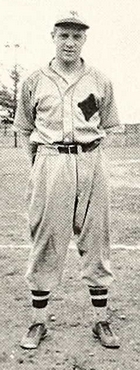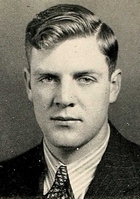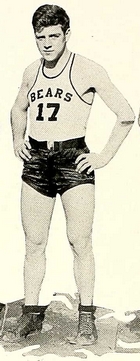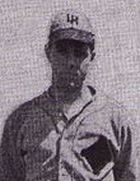Felix Little
| Date and Place of Birth: | June 26, 1916 Catawba, NC |
| Date and Place of Death: | December 18, 1944 Pici Field, Fortaleza, Brazil |
| Baseball Experience: | Minor League |
| Position: | Pitcher |
| Rank: | Lieutenant |
| Military Unit: | Patrol Bombing Squadron VPB-134 US Navy |
| Area Served: | South America |
Felix A. Little, the son of Dr. Charles and Alice Little, was from Catawba, North Carolina, and attended
Lenoir-Rhyne College in Hickory, where he played basketball, baseball
and football. Little was a pitcher and in his freshman year (1936), he
was 1–1 in five appearances for the Mountain Bears with a 2.03 ERA. The
following year he was 2–5 and struck out 50 in 50 innings. Little was
the mainstay of the pitching staff in 1938, winning four games against
three losses for a 1.80 ERA. In his senior year, Little served as
varsity baseball co-captain. He hurled a 15–0 two-hitter against Elon
College on April 19, 1939, and helped the Mountain Bears to the North
State Conference title.
In April 1939, the Hickory Rebels, formerly of the independent Carolina
League, and now an entry in the newly formed Class D Tar Heel League,
were looking for players. Little, together with pitcher/outfielder Ed
Tuttle and catcher Clyde McSwain, had successful tryouts, and the
right-hander made a handful of appearances as a relief pitcher.
In 1940, he joined the Newton-Conover Twins of the same league and was
4–7 in 16 appearances with a 5.27 ERA. His career as a professional
baseball player ended after the 1940 season, and Little accepted a
position as a teacher and athletic coach at Balls Creek High School in
Newton, North Carolina.
Little entered military service with the Navy on May 15, 1941, and graduated as
a bomber pilot at Jacksonville Naval Air Station in Florida. Lieutenant
Little served with Patrol Bombing Squadron VPB-134 flying Lockheed PV-1
Ventura twin-engine bombers, and in January 1944, the squadron relocated
to Brazil, South America. The northern coast of Brazil provided ideal
locations to cover the vital South Atlantic shipping routes and the
squadron was initially stationed at Ibura Field in Recife, before moving
to Pici Field at Fortaleza in April 1944.
On December 18, 1944, Little was among nine crew and passengers aboard a
PV-1 being flown by Lieutenant Junior Grade Charles G. Wolfe. As the
plane left the runway at Pici Field, the port engine exploded and the
airplane crashed, killing all on board.
The crash resulted in a general squadron stand down while all planes
were inspected. Several were found to have major deficiencies requiring
several months to make them airworthy.
Little’s brother Philip, a private with the 1st Armored Division in
North Africa, had lost his life in action two years earlier. Felix
Little’s body was returned to the United States in April 1948, and now
rests at the Catawba United Methodist Church Cemetery.
|
Year |
Team |
League |
Class |
G |
IP |
ER |
BB |
SO |
W |
L |
ERA |
| 1939 |
Hickory |
Tar Heel | D | - | - | - | - | - | - | - | - |
| 1940 | Newton-Conover | Tar Heel | D | 16 | 99 | 58 | 48 | 39 | 4 | 7 | 5.27 |
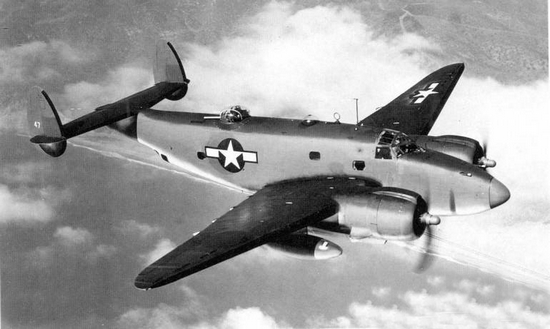
A Lockheed PV-1 Ventura
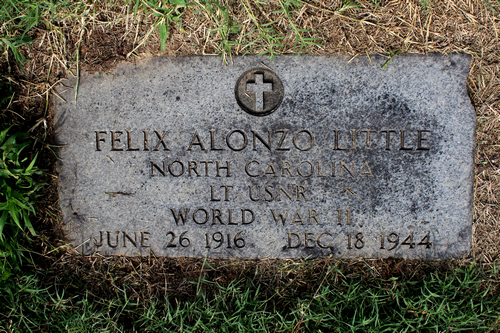
Thanks to Astrid van Erp for help with photos for this biography
Date Added February 1, 2012 Updated March 14, 2020
Baseball's Greatest Sacrifice is associated with Baseball Almanac
Baseball's Greatest Sacrifice is proud to be sponsored by

